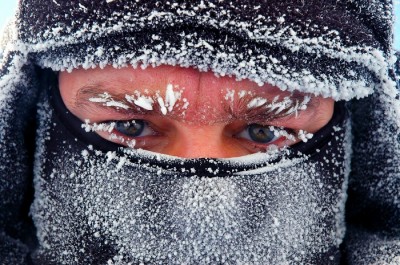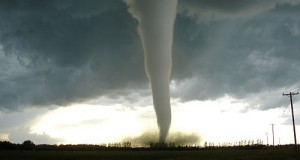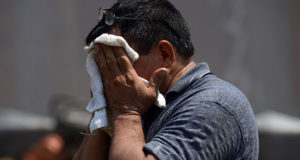Old Man Winter appears to be here earlier than we’d like. The mounds of snow outside and the unseasonably chilly temperatures in many parts of the country serve as a reminder of exactly how treacherous being caught outdoors can be if not adequately prepared.
Before the cold temperatures get even worse, take a few minutes to learn about hypothermia prevention.
When the human body becomes extremely cold, blood flow decreases to specific parts of the body, usually the extremities. When the core temperature of the body drops too low, garnering warmth becomes immediately critical to survival. During normal circumstances, the human body gives off heat, but when exposed to either cold water or cold weather for an extended period of time, body heat is lost faster than it can be replaced, placing the victim in a state of hypothermia.
During hypothermia, the victim’s essential organs, such as the heart and lungs, cannot function properly, and a loss of consciousness can follow. Left untreated, hypothermia typically leads to heart failure and death. Cases of hypothermia range from mild to severe, depending upon the length of exposure and level of aid offered.
The Most Versatile Backup Stove In The World Allows You To Cook Anything, Any Time, Any Where
Recognizing early the signs of hypothermia can mean the difference between life and death. Shivering is common when outdoors during cold weather, especially when exposed to the elements for an hour or longer. But when the shivering appears to become uncontrollable, hypothermia has most likely set in. Victims also often lose coordination and appear clumsy, have difficulty thinking and appear to become apathetic. A severe case of hypothermia has most likely already set in if the victim has either slow or shallow breathing or has lost consciousness altogether.
Hypothermia Treatment and Prevention Tips
1. Remove wet clothing. If the victim is unconscious and cannot aid in the effort, use a knife or pair of scissors and cut away the wet clothing. Put dry clothing or blankets firmly on the victim as soon as possible. The individual may be unable or unwilling to help, so try to remain calm yet firm and complete the task quickly.
2. Prevent the victim’s continued heat loss as much as possible. If the victim is not physically injured and can be moved, get him or her inside a tent, car or any type of makeshift shelter which gets their body off the ground. Building a fire next to the victim is also advised, regardless of whether or not they can be moved. Although being inside the shelter of a vehicle protects the victim from the elements, if the car cannot be started, sitting on a rock near a fire outdoors could be the warmer option. It is a good idea to have hand warmers or Mylar style blankets with you.
An Amazing Breakthrough In Compact Portable Backup Power — Easily Fits In Your Pocket Or Backpack!
3. Huddle together. Two people can usually cuddle inside a blanket and generate enough heat to survive inclement weather. Skin-to-skin contact will help raise the body temperature of a hypothermia victim. In a survival situation, there is no time to be shy. Direct skin-to-skin contact on the neck, chest and head are commonly noted as the best heat-sharing body parts. Rub the victim’s skin to generate friction and additional warmth. If the victim is awake and able, try to have them slowly consume a warm beverage or even a snack. Some outdoor enthusiasts recommend chocolate, or anything else with caffeine to help increase body heat.
4. Monitor body temperature. If the victim’s temperature dips below 95 degrees, immediate medical attention is needed to prevent possible death. If required, go for help. Making the victim as warm and safe as possible while you look for help could very likely mean the difference between life and death. If faced with a disaster scenario where calling 911 is not a viable option, attempting to carry the victim to a space where warmth and possible assistance exists could be their final chance at survival.
Prevent the chances of becoming a hypothermia victim by always leaving the house prepared. Pack a change of clothes, firestarters, emergency blankets and hand warmers, along with beverages, snacks and basic camping cooking gear. It can mean the difference between life and death.
What are your hypothermia survival tips? Share them in the section below:
 Off The Grid News Better Ideas For Off The Grid Living
Off The Grid News Better Ideas For Off The Grid Living





